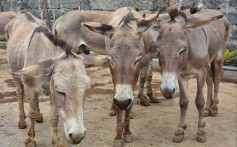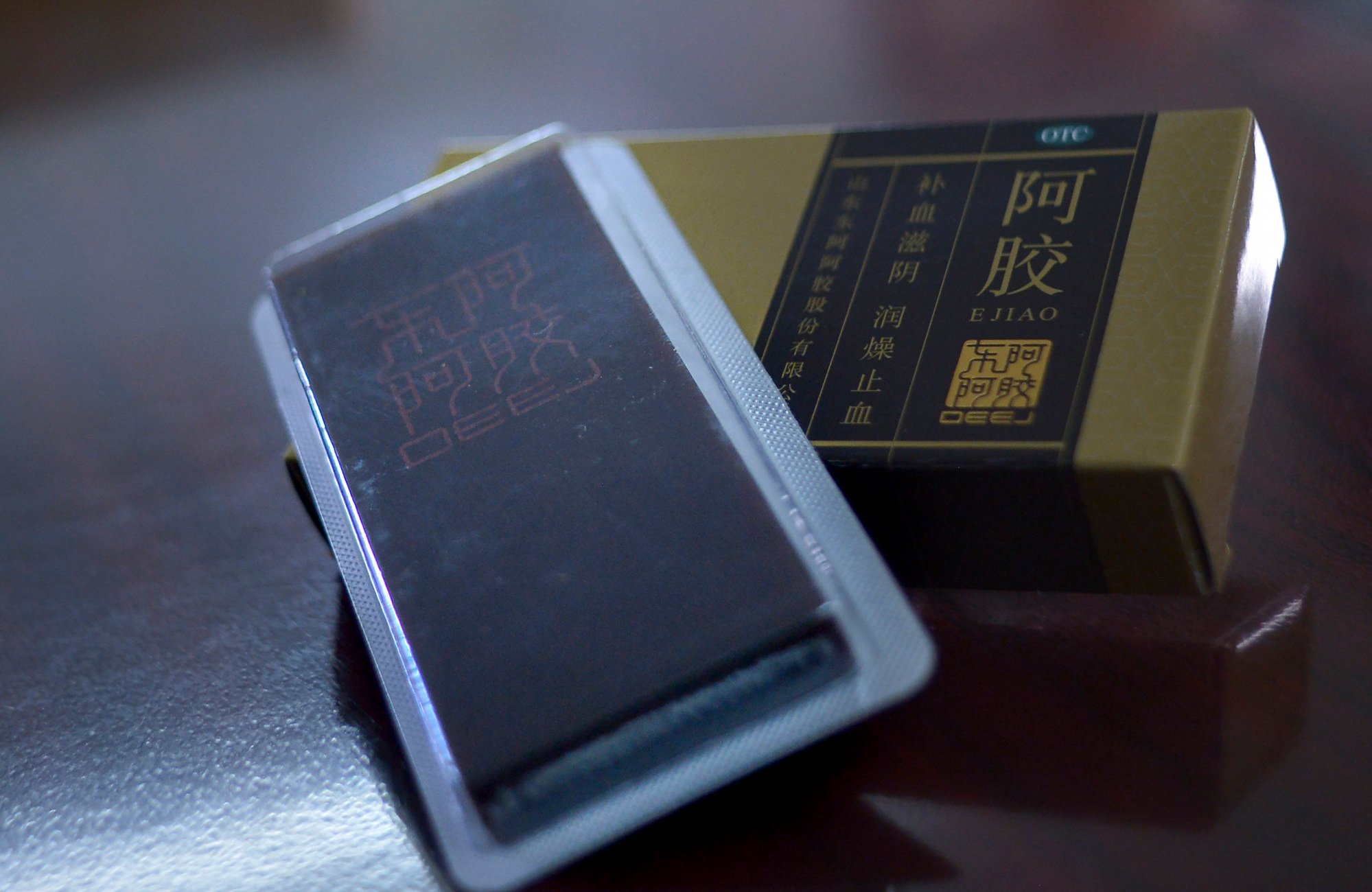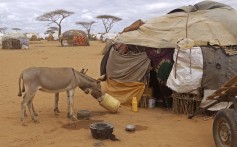Chinese demand for the hides accounts for the slaughter of more than 5 million animals each year, many from Africa
Animal welfare groups have welcomed the African Union’s decision to end the slaughter of donkeys for their skins
Jevans Nyabiage
20 Feb, 2024
SCMP
Africa has banned the slaughter of donkeys for their skins, dealing a significant blow to China’s lucrative market for a traditional medicine made from a gelatin extracted from the hides.
Insatiable demand for ejiao – which is said to improve vigour, enrich the blood and have anti-ageing properties – has obliterated China’s own donkey population, leading to huge export industries in Africa and South America.
But the African Union (AU) heads of state on Sunday ratified a motion proposing a 15-year ban on the donkey skin trade. Animal welfare organisations welcomed the decision as an “historic moment”.
The ban was proposed in November by the AU’s specialised technical committee for agriculture, rural development, water and environment and ratified by the leaders, who were in Addis Ababa for the 37th ordinary session of the AU Assembly.
Africa is home to about two-thirds of the world’s donkeys. Ethiopia – with nearly 100 million animals – is said to be the “world’s donkey superpower”. Sudan, Pakistan and Chad are also among the world’s top producers.
Demand for Chinese medicine fuelling illicit African donkey trade
31 Jan 2023

Donkeys are stubbornly difficult to breed, with a gestation period that can last more than a year. Any obstacle to China’s imports of their skins is likely to pile on the pressure for the booming ejiao industry.
Ejiao was once known as a “medicine for emperors” but is now marketed to China’s affluent population. Collagen is extracted by boiling the donkey hides and then mixed with herbs and other ingredients into bars, pills and liquids.
Chinese demand accounts for the slaughter of more than 5 million donkeys annually, but only 2 million of those are supplied domestically. The remainder come from imported donkey hides – which could be fuelling an illegal trade in other countries.
The Africa ban follows an outcry from communities and animal rights groups, who say that the donkeys are treated cruelly or stolen from farmers who rely on them for their livelihoods.
Brooke East Africa, one of the associations that worked with the African Union Inter-African Bureau for Animal Resources to push for the ban, welcomed Sunday’s decision. “It is a great moment for donkeys all over the world and for indigenous African biodiversity conservation,” said Dr Raphael Kinoti, the association’s regional director.
“Donkey slaughter for its skin has had many negatives, from eroding livelihoods in Africa to robbing the continent of its culture, biodiversity and identity.

Ejiao, a traditional medicine made of gelatin extracted from donkey skins, is marketed to China’s middle class as an anti-ageing treatment. Photo: AFP
“We must all applaud the AU heads of states for taking these bold and drastic measures for a good cause. We urge all AU members to uphold the decision for the good of all.”
Animal welfare charity The Donkey Sanctuary also welcomed the move, saying it will help to protect the continent’s 33 million donkeys from being stolen, trafficked and slaughtered.
The charity said it would safeguard the tens of thousands of communities in Africa that rely on donkeys for their well-being and livelihoods.
“Donkeys in Africa will have enhanced protection from the devastating donkey skin trade following the ratification of a pan-African moratorium on the slaughter of donkeys for their skin,” it said.
“We must all applaud the AU heads of states for taking these bold and drastic measures for a good cause. We urge all AU members to uphold the decision for the good of all.”
Animal welfare charity The Donkey Sanctuary also welcomed the move, saying it will help to protect the continent’s 33 million donkeys from being stolen, trafficked and slaughtered.
The charity said it would safeguard the tens of thousands of communities in Africa that rely on donkeys for their well-being and livelihoods.
“Donkeys in Africa will have enhanced protection from the devastating donkey skin trade following the ratification of a pan-African moratorium on the slaughter of donkeys for their skin,” it said.
How China’s demand for donkey skins risks ‘devastating’ African communities
28 Nov 2019

The Donkey Sanctuary says at least 5.9 million donkeys are slaughtered for their skins every year across the globe. The number – which it describes as conservative – is projected to reach 6.7 million by 2027, to satisfy Chinese demand, it said.
The charity’s chief executive Marianne Steele, who described the AU decision as “enormous”, said the “agreement from leaders of the African Union strikes at the heart of the brutal skin trade”.
“It’s our hope that this decision will act as a catalyst for the rest of the world to act now, to not just save our donkey populations but to actively recognise their value and protect them properly,” she said.
Traditional Chinese medicine-infused food becomes new fad among young Chinese
According to the charity, the situation in Kenya – where authorities have closed several Chinese-owned donkey slaughterhouses – is such that the animals could become endangered.
“If the exploitation of donkeys were to continue at the rate we had been seeing, in another three to six years donkeys could be joining rhino and elephants as an endangered species in Africa,” it said.
The charity also pointed out the decision will need to be implemented and enforced by every country in the African Union.
Tanzania and Ivory Coast have already banned the trade, while Kenya closed four Chinese-owned slaughterhouses in 2020 in response to increasing cases of donkey theft.
Across the Atlantic in Brazil, a bill to ban donkey and horse slaughter will proceed to the Constitution and Justice Committee of the country’s Congress after it was passed by both the agricultural and environmental commissions.
Brazil is one of China’s biggest markets for donkey skins, but the animal also holds cultural significance for the Brazilian people. The bans in Brazil and Africa will effectively cut off China’s supply from two of the biggest markets in the trade.

Jevans Nyabiage
Kenyan journalist Jevans Nyabiage is the South China Morning Post's first Africa correspondent. Based in Nairobi, Jevans keeps an eye on China-Africa relations and also Chinese investments, ranging from infrastructure to energy and metal, on the continent.
No comments:
Post a Comment